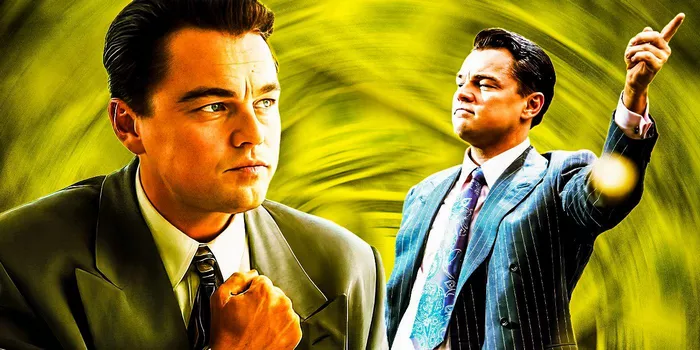The Wolf of Wall Street, directed by Martin Scorsese, hit the screens with a storm of controversy. The film, based on the memoir of Jordan Belfort, the infamous stockbroker, depicted the excessive and debauched lifestyle of Belfort, raising questions about morality and ethics in the world of finance. Despite receiving critical acclaim for its cinematic brilliance, the movie faced sharp criticism for its apparent lack of moral condemnation of Belfort’s actions and its seeming glorification of his extravagant lifestyle. In the wake of this controversy, Scorsese, renowned for his uncompromising storytelling, has responded to the film’s detractors, brushing off the moral critique as “beyond boring.”
The Wolf’s Mixed Reception: Glorification or Satire?
While some lauded the film’s bold and unapologetic portrayal of the excesses and indulgences in the world of finance, others slammed it for failing to offer a clear moral standpoint on Belfort’s actions. Critics argued that the movie seemed to glorify the luxurious lifestyle and the ruthless, manipulative tactics employed by Belfort and his cohorts, without adequately addressing the negative consequences of their actions. The absence of a clear denouncement of Belfort’s behavior left a bitter taste in the mouths of those who expected a more pronounced moral commentary.
On the contrary, another faction of critics interpreted the movie as a scathing satire, a mockery of the greed-driven culture that Belfort and his associates embodied. They argued that the film deliberately highlighted the absurdity and the moral bankruptcy of the characters’ actions, aiming to provoke introspection rather than glorification. This interpretation emphasized the film’s depiction of the characters’ eventual downfall, portraying the consequences of their reckless pursuit of wealth and pleasure, which ultimately led to their downfall.
Scorsese’s Artistic Honesty and Intent
In light of the heated discussions surrounding the film’s moral compass, Martin Scorsese, the mastermind behind the movie, stands by his artistic choices. Known for his uncompromising and unapologetic storytelling, Scorsese has often delved into the intricacies of human nature, exploring the depths of morality, guilt, and redemption. Throughout his career, he has crafted films that depict the complexities of human behavior without offering easy answers or clear moral judgments. From the violent gangsters in “Goodfellas” to the tormented protagonist of “Taxi Driver,” Scorsese has consistently presented morally ambiguous characters, leaving audiences to grapple with the implications of their actions.
In response to the criticisms of The Wolf of Wall Street, Scorsese dismisses the moral outrage as “beyond boring,” emphasizing the importance of presenting stories authentically and without sugar-coating the darker aspects of human nature. For Scorsese, the portrayal of flawed characters and their moral dilemmas is not meant to endorse or condemn their behavior outright but to invite audiences to confront the complexities and contradictions within themselves. He sees storytelling as a means of reflection and introspection, urging viewers to engage critically with the narratives rather than seeking easy moral resolutions.
Exploring the Gray Areas of Morality in Film
The debate surrounding The Wolf of Wall Street brings to the forefront the enduring tension between artistic expression and moral responsibility in filmmaking. While some argue that filmmakers bear a certain ethical obligation to condemn immoral behavior within their narratives, others contend that art should reflect the multifaceted nature of human experience, even if it means delving into the darker recesses of the human psyche.
Scorsese’s stance exemplifies a commitment to presenting stories in all their complexity, challenging audiences to grapple with the inherent contradictions and moral ambiguities that define the human condition. His refusal to succumb to the pressure of delivering a clear moral message underscores the notion that art, particularly in the realm of cinema, serves as a reflection of the human experience rather than a didactic tool for moral instruction. By exploring the gray areas of morality, Scorsese encourages viewers to confront the uncomfortable truths and complexities that permeate everyday life, transcending the boundaries of conventional storytelling to provoke thought and introspection.
Conclusion
In the world of cinema, the portrayal of moral ambiguity has long been a contentious subject, sparking debates about the responsibilities of filmmakers and the role of art in society. The Wolf of Wall Street, with its unapologetic depiction of excess and moral bankruptcy, serves as a potent catalyst for discussions about the boundaries of artistic expression and the complexities of human behavior. Scorsese’s unwavering commitment to presenting stories honestly, without succumbing to conventional moral narratives, challenges audiences to confront the nuances of morality and introspect on their own ethical compass. In the end, whether one views The Wolf of Wall Street as a celebration or a critique of the culture it portrays, Scorsese’s response stands as a testament to the enduring power of art to provoke thought and ignite conversations that transcend the confines of the screen.

